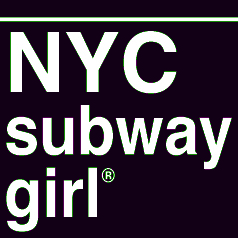Christopher Roberts Matthews who blogs about money and music
I found his post online about NYC musicians in the subway. As a performer with MUNY since 1999 I find the unique environment of performing as part of the daily soundtrack compelling and engaging. It's certainly never boring. I find NY'ers generous with their spirit as much as with their coins. Thanks for the post
by Christopher Roberts Mathews
The tension between art and commerce has a storied history, but nowhere is it more conspicuous as the New York City Subway. The city’s underground teems with musicians, artists, and performers soliciting donations for their work.
Some, like singer and ukulele player Crow Joe Ryan, make their living from the coins and dollar bills subway riders toss into his tin. Others use the forum to promote their careers above ground.
These public performers call themselves “buskers,” a word derived from the Spanish verb “buscar” meaning “to seek.” They’re somewhat of an anachronism in a world where hit songs can be downloaded for under a dollar, but are more often procured for free.
With the various business models that musicians have come to rely on buckling under the pressures of the internet and the explosion of the number of forms of entertainment, busking has stayed more or less the same. “I haven’t noticed any difference,” in the amount or kinds of people who play in the subway says violist Willy Naess, who has been busking in New York for ten years.
It seems odd that in a world where world-famous musicians have trouble convincing their fans to spend 99 cents for a professionally-produced hit song that amateurs could make any money at all playing in the subway. But there is something about a musician confronting you with their art that seems to motivate people to donate money. “I think some people appreciate another human being putting themselves out there and trying to contribute something of beauty to the work day of New York,” suggests Elizabeth Rogers, a busker associated with Music Under New York (MUNY), a program run by the Metropolitan Transit Authority which auditions and selects over 100 musicians to put on weekly performances in the some of the busiest subway stops in New York.
MUNY has been promoting music in the subway since 1985 and has “garnered great enthusiasm from the commuting public,” according to its website. Performers selected for the program are given personalized banners to display where they perform, but their compensation is no different than any other busker: what passersby deem to throw their way.
Glenn Roth, a fingerstyle guitarist and MUNY performer, sees benefits far beyond the few dollars he makes in an afternoon of playing. Playing in highly visible locations like Union Square is “the best free advertisement there is out there,” he says. Roth plays several gigs a week, including weddings, corporate events and club dates, but he says the subway is one of the best places to attract new fans and sell CDs.
The subway is a unique place in modern society where people are relatively undistracted. Most riders are cut off from the internet while underground. They commute armed with just a book or their thoughts to entertain them. Naess uses this dynamic to his advantage. He traverses the subway cars themselves playing Bach cello suites, finding he makes more in the confines of the car then when he used to play on the platform. He sees people giving money for a variety of reasons: some people are just generous, but others are pleasantly surprised to hear classical music on their commutes. “People say to me, ‘that was actually really good. I wasn’t expecting to give you anything, but here’s a dollar.”
Rogers believes that busking is unique in the personal connection it can foster between a musician and an audience. Passengers aren’t expecting to hear something that moves them, that makes them pause and reflect. “We live such busy lives, and people tend to just go go go. I’m doing something to help someone slow down a moment and notice this moment . . . to support them to just be there.”
posted 11/23/2010
Christopher Roberts Matthews blogs about money and music
